Filter by

Latin America's political economy of the possible :beyond good revolutionarie…
AnnotationOCLC-licensed vendor bibliographic record.
- Edition
- -
- ISBN/ISSN
- 9780262283021
- Collation
- 1 online resource (xix, 250 pages) :illustrations
- Series Title
- -
- Call Number
- -

Machine translation :a view from the lexicon
"Bonnie Jean Dorr is Assistant Professor in the Computer Science Department at the University of Maryland.""This book describes a novel, cross-linguistic approach to machine translation that solves certain classes of syntactic and lexical divergences by means of a lexical conceptual structure that can be composed and decomposed in language-specific ways. This approach allows the translator to o…
- Edition
- -
- ISBN/ISSN
- 0262290839
- Collation
- 1 online resource (xx, 432 pages) :illustrations.
- Series Title
- -
- Call Number
- -

Readings in machine translation
"A Bradford book."The field of machine translation (MT) -- the automation of translation between human languages -- has existed for more than fifty years. MT helped to usher in the field of computational linguistics and has influenced methods and applications in knowledge representation, information theory, and mathematical statistics. This valuable resource offers the most historically signifi…
- Edition
- -
- ISBN/ISSN
- 9780262280679
- Collation
- 1 online resource (xv, 413 pages) :illustrations
- Series Title
- -
- Call Number
- -
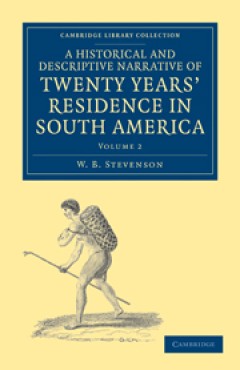
A Historical and Descriptive Narrative of Twenty Years' Residence in South Am…
In 1804 when W. B. Stevenson (fl. 1803–25) arrived on the small island of Mocha, just off the coast of South America, he stepped onto a continent on the brink of mass revolution. Over the next twenty years, he had an extraordinary range of experiences: as a traveller, a Spanish government official, a prisoner, and as secretary to an ex-Royal Navy admiral turned revolutionary. In this three-vo…
- Edition
- -
- ISBN/ISSN
- 9781139060592
- Collation
- -
- Series Title
- Cambridge Library Collection - Latin American Studies
- Call Number
- -
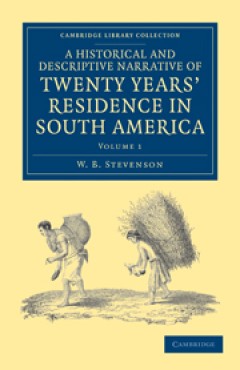
A Historical and Descriptive Narrative of Twenty Years' Residence in South Am…
In 1804 when W. B. Stevenson (fl. 1803–25) arrived on the small island of Mocha, just off the coast of South America, he stepped onto a continent on the brink of mass revolution. Over the next twenty years, he had an extraordinary range of experiences: as a traveller, a Spanish government official, a prisoner, and as secretary to an ex-Royal Navy admiral turned revolutionary. In this three-vo…
- Edition
- -
- ISBN/ISSN
- 9781139060585
- Collation
- -
- Series Title
- -
- Call Number
- -

Epidicus by Plautus An Annotated Latin Text, with a Prose Translation
Epidicus, a light-hearted comedy by Plautus about the machinations of a trickster slave and the inadequacies of his bumbling masters, appears here in both its original Latin and a sparkling new translation by Catherine Tracy. Epidicus, the cunning slave, is charged with finding his master’s illegitimate daughter and the secret girlfriend of his master’s son, but a comedy of mistaken identit…
- Edition
- -
- ISBN/ISSN
- 9781800642867
- Collation
- -
- Series Title
- -
- Call Number
- -

Platinum Metals in the Environment
This edited volume presents new data and insights from the most internationally respected PGE experts, representing a variety of disciplines ranging from chemistry, geochemistry, biology, environmental science to toxicology and environmental health. It builds upon three previous co-edited books published by Springer, Zereini and Alt (Eds.) (1999, 2000 and 2006), incorporating the most recent ad…
- Edition
- 1
- ISBN/ISSN
- 978-3-662-44559-4
- Collation
- XXII, 492
- Series Title
- Environmental Science and Engineering
- Call Number
- 669.24 ZER p
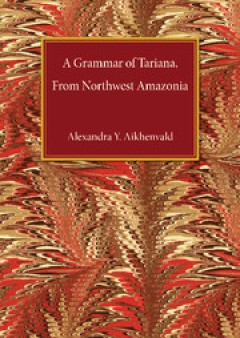
A Grammar of Tariana, from Northwest Amazonia
This is a comprehensive reference grammar of Tariana, an endangered Arawak language from a remote region in the northwest Amazonian jungle. Its speakers traditionally marry someone speaking a different language, and as a result most people are fluent in five or six languages. Because of this rampant multilingualism, Tariana combines a number of features inherited from the protolanguage with pro…
- Edition
- -
- ISBN/ISSN
- 9781107050952
- Collation
- -
- Series Title
- -
- Call Number
- -
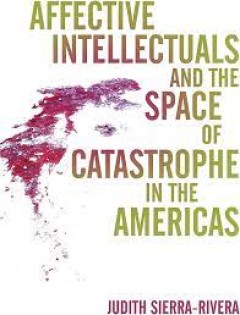
Affective Intellectuals and the Space of Catastrophe in the Americas
Most importantly, the book shows how literature constitutes an alternative public sphere for Black people. In a society largely controlled by white supremacist actors and institutions, Black authors have conjured fiction into a space where hard questions can be asked and answered and where the work of combatting collective, racist suppression can occur without replicating oppressive hierarchies…
- Edition
- -
- ISBN/ISSN
- 9780814254950
- Collation
- -
- Series Title
- -
- Call Number
- -
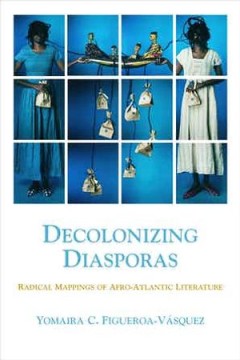
Decolonizing Diasporas : Radical Mappings of Afro-Atlantic Literature
Decolonizing Diasporas proposes a new way to read the literary and cultural productions of the Afro-Atlantic. Mapping literature from Spanish-speaking Sub-Saharan African and Afro-Latinx Caribbean diasporas, Figueroa-Vásquez argues that the works of diasporic writers and artists offer ways of imagining new worldviews which dismantle the logics of colonial modernity. Utilizing women of color fe…
- Edition
- -
- ISBN/ISSN
- 9780810142435
- Collation
- 304 halaman
- Series Title
- -
- Call Number
- 800 FIG d
 Computer Science, Information & General Works
Computer Science, Information & General Works  Philosophy & Psychology
Philosophy & Psychology  Religion
Religion  Social Sciences
Social Sciences  Language
Language  Pure Science
Pure Science  Applied Sciences
Applied Sciences  Art & Recreation
Art & Recreation  Literature
Literature  History & Geography
History & Geography